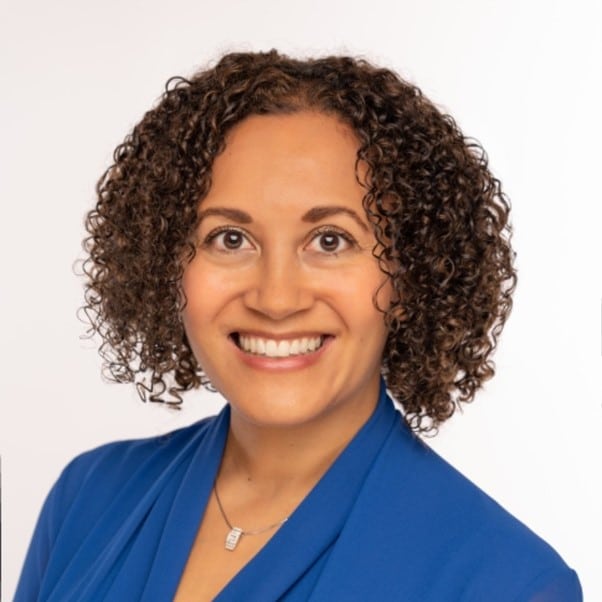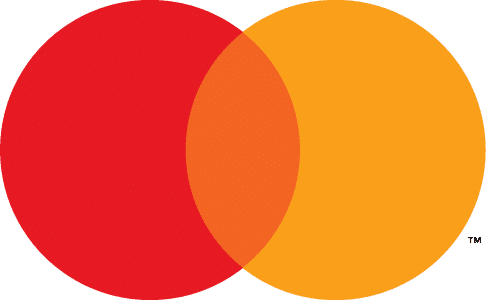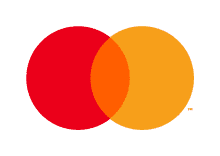It is the nature of hype to underwhelm, at least at first. Having generated its fair share of excitable headlines back in 2017 and 2018, when neobanks and FinTechs were hotly tipped to spark a banking revolution on the back of regulatory reform in the UK and Europe, Open Banking then lost some of its heat as hype met the real world reality of operational inertia, systems complexity and, of course, a pandemic.
Hyped innovations often work to their own timetable, however. It doesn’t mean their potential was overegged – just slow to hatch. It took many years for contactless payments to penetrate the mainstream: now, they are ubiquitous. And pundits not only believe the same slow burn to ubiquity will hold true for Open Banking but that it will also be much quicker once certain milestones are reached.
60% of UK consumers don’t understand Open Banking¹
For now, however, we are five years into the journey and surveys suggest the majority of UK consumers (58 per cent) are still largely in the dark about Open Banking. A survey released in early 2023 found 60 per cent of UK consumers didn’t fully understand it, 63 per cent either weren’t using it or didn’t know if they were using it, and 84 per cent said they didn’t fully trust it².
The findings are hardly reassuring for those who have spent huge sums building out the Open Banking ecosystem although they may take some comfort from the fact that once the concept was explained, over half of the respondents (52 per cent) said they thought it could deliver a more valuable and personalised experience in the future.
And that future is getting ever closer – albeit slowly. At the end of March 2023, Open Banking Limited (OBL), the CMA Order’s implementation entity, found open banking-enabled products were being used by over seven million consumers and small businesses. Small businesses tend to favour data-driven account information services (AIS) that provide real-time insights for cash flow and forecasting while consumers are the main users of payment initiation services (PIS), which allows them to move money to top-up wallets, pay tax or credit card bills.
These payments are not yet anywhere close to rivalling existing payment channels but the volumes are growing. According to OBL, there were 68.2 million Open Banking payments in 2022, up from 25.2 million in 2021 with month-on-month growth running at around 10 per cent and year-on-year growth of significantly more than 100 per cent. This is encouraging because it suggests that as consumers grow more comfortable with Open Banking, even if they don’t call it that, they do like the convenience, insight and control afforded by these new services.
Cautious optimism
For those on the coal face of Open Banking delivery, these numbers are reason for cautious optimism. “There was the initial hype phase, then reality dawned and we entered a trough of despair and now, six years on, we’re back up as we start to see some real traction,” says Matt Cox, Director of Digital Payments and Cards at Nationwide Building Society. He points out that the 150-year-old mutual still considers itself a challenger when it comes to current account banking. “We entered that space in 1987 and it took from then to now to get to a 10 per cent market share,” says Cox. “When you have this perspective, it’s clear that Open Banking is still at the beginning of its maturity journey, yet the industry has already created an entirely new channel and ecosystem with the highest performance standards in just five years.”
“Open Banking payments will be part of daily life but first we have to show it’s secure, reliable and can be trusted”
Matt Cox, Nationwide Building Society
Just as contactless took time to penetrate the mainstream, he fully expects Open Banking payments to become the default payment option in many instances in the future. “It will be part of daily life but first we have to show it’s secure, reliable and can be trusted,” he says.
It helps that for many customers, at least in the UK, their first experience of Open Banking payments comes when they pay their tax bill. HMRC may not be popular but it does tend to have a reputation for being risk-averse and a prudent financial steward so its decision in March 2021 to use an Open Banking payment provider for the collection of self-assessment, PAYE, corporation tax, capital gains tax and stamp duty land tax was a real vote of confidence in the security and reliability of this new channel³.
“Wider consumer adoption comes down to trust”
Jonas Vogt Rasmussen, Mastercard Open Banking Europe
When it comes to the wild west of global e-commerce, however, customers tend to feel more exposed. “Wider consumer adoption comes down to trust and understanding the value and what happens if something goes wrong,” says Jonas Vogt Rasmussen, Vice President and Head of Banking Sales at Mastercard Open Banking Europe. “When they pay with their card , customers feel safe because of the trust Mastercard and the card payments ecosystem have built for decades. We need to do the same for Open Banking Payments to help scale adoption.”
Samantha Emery, Payments Industry and Development Director at Lloyds Banking Group, agrees that trust will be critical to secure consumer adoption. And she notes that the term “Open Banking” may not be particularly helpful in the UK context, where banks have only recently rehabilitated their reputations following previous mis-selling scandals and the fall-out from the financial crisis.
Rasmussen agrees, noting that many consumers either don’t understand the term or simply distrust any idea of “openness” when it comes to their financial data and hard-earned money. “New terms, like Pay By Bank or Smart Payments, are starting to be used and probably make more sense to consumers,” he says.
The comfort factor
“We do not yet have that comfort factor around protections and disputes.”
Samantha Emery, Lloyds Banking Group
It’s not just consumers who are being cautious. Samantha Emery at Lloyds Banking Group says the big banks have a duty to protect their customers’ data and money, which means they’re not going to rush in with mass marketsolutions until issues around consumer protection, dispute resolution and fraud have been addressed.
“We’re very excited about the pace of growth but there are barriers, such as merchant onboarding risks and consumer protections, that need to be addressed before Open Banking payments can reach their full potential,” says Emery. “We do not yet have that comfort factor around protections and disputes.”
This is certainly echoed by Matt Cox of Nationwide. “When it comes to e-commerce, cards dominate because they work and they’re trusted,” he says. “There are tried and tested methods of dispute management with cards that have been built up over decades and are very resilient. It will take time and investment for Open Banking Payments to match this.”
He also highlighting how card payments are now more secure than ever following the introduction of Strong Customer Authentication (SCA). At Nationwide, for example, SCA has resulted in a 25 per cent drop in card fraud and 2,000 fewer victims of fraud every month. It’s a high benchmark for Open Banking payments to meet. But, say our experts, they may not only meet this benchmark but also exceed it.
“We need to collectively focus on fraud first – or we could regret it”
Matt Cox, Nationwide
“There are opportunities to create more sophisticated defences against fraud by using enhanced data when a payment is made,” explains Cox. “By assessing the nature of the account, the business behind it and whether it’s deemed high risk, there are more opportunities for banks to intervene and prevent a possible loss.”
For Cox, this should be the focus of the next wave of Open Banking innovation. “Caring about what customers want in this next phase should be first and foremost of what we do,” he says. “We need to collectively focus on fraud before we do some of the other things – we could regret it otherwise.”
The next frontier
“Variable recurring payments are the next frontier in payments”
Jonas Vogt Rasmussen, Mastercard Open Banking Europe
Innovation, however, does not take a time out. Already many innovators are building out use cases for variable recurring payments (VRPs), an important alternative to the likes of direct debit, standing orders and cards, which Jonas Vogt Rasmussen describes as “the next frontier in payments”.
At the end of last year, HSBC, Santander, NatWest, Nationwide, Lloyds, and Barclays (six of the CMA9) had implemented and were able to offer VRPs for sweeping – where consumers or businesses move money from one of their accounts to another (so called ‘me-to-me’ payments). This is still very early days but the industry sees a lot of potential to help customers sweep surplus funds into interest-bearing savings accounts to get the best rate, to pay down credit cards and overdrafts to reduce the cost of borrowing, or to make “one click” top ups of other accounts or wallets. There’s also the potential to set spending limits over set time periods to help consumers self-govern their behaviour and exercise financial wellness.
“The key thing is payments can be initiated on consumers’ behalf without recurring SCAs, which means through one mandate, future payments are automatically initiated within that mandate, which is a much more efficient and seamless way of doing things,” explains Rasmussen of Mastercard. “It’s good for the subscription economy, for automated top ups of accounts and unlocking completely new use cases we haven’t thought of yet.”
Further ahead, there are also non-sweeping use cases to be explored, making it more efficient way to pay monthly utility bills, by varying the payment amount and the account intervals in a way that suits the customer, or to have more control over subscription services.
“There are so many efficiencies… the benefits are topline and bottom-line”
Jonas Rasmussen, Mastercard Open Banking Europe
For banks, there’s the opportunity to reduce human error and lower costs while businesses could save billions in processing fees and optimise their cashflow. There are plenty of low hanging fruit that can add real value to the business, including integrating with back-office bookkeeping and invoicing applications.
Samantha Emery of Lloyds Banking Group says for now top-ups are seen as one of the largest opportunities, as well as solutions to help customers better manage overdrafts and savings.
“There’s definitely scope to get customers to some place where they start to form more beneficial financial habits and improve their financial wellbeing,” says Emery. “But we also have a duty to make sure customers remain in control and do not automate away their running of their personal accounts by, for example, using sweeping to swap money to a new savings provider for a really great headline rate but then find the benefit is short-lived because that provider doesn’t offer sweeping and the money is stuck.”
She also points out that banks like Lloyds have a duty to all customers, not just the most digitally savvy. “We’re here to support all our customers in the ups and downs of their lives,” she said. “It’s not all about technology.”
Monetising the opportunity
Importantly, this next wave of innovation should create opportunities for banks to start monetising their investment in Open Banking payments. This is key because thus far Open Banking has been a whole lot of investment for the big banks with an as-yet unclear pathway to generate returns.
“We need to move a model where there’s an even playing field for all providers and the costs – about £400-£500 per user – are borne across the ecosystem. It needs to work commercially to be sustainable and deliver innovation at scale.”
Matt Cox, Nationwide
As Matt Cox of Nationwide points out, the CMA9 have built a thriving ecosystem of business, talent and jobs that’s hugely positive for banking and UK plc. “But now we need to move to a model where there’s an even playing field for all providers and the costs are borne across the ecosystem,” says Cox, pointing out that the costs are currently about £400-£500 per user. “It needs to work commercially to be sustainable and deliver innovation at scale.”
Warming to the topic he expands: “People talk about Open Banking as if it’s just a couple of APIs and that hurts me to the core! It just doesn’t recognise the complexity and huge investment required to create an entirely new channel that’s always available and highly sophisticated and is a platform for the growth of the future. We’ve built this and now we have to look at how to sweat those assets.”
Jonas Vogt Rasmussen of Mastercard Open Banking is confident this investment will pay off as the resulting competition and innovation in the payments space drives increased efficiencies, productivity and customer experience enhancements that will prove compelling for both businesses and customers.
“Right now, people want to pay with their card or trusted mobile wallet,” he says. “But in the coming years, people at scale will say ‘I want to pay with my bank’ and we’re ready to help banks and businesses deliver that.”
Hype, realised.
FOOTNOTES:
1https://uk.nttdata.com/news/five-years-on-and-60-percent-of-consumers-still-dont-understand-what-open-banking-is
2https://uk.nttdata.com/news/five-years-on-and-60-percent-of-consumers-still-dont-understand-what-open-banking-is
3By February 2023, Ecospend revealed that more than £2.3 billion in Self Assessment payments were made to HMRC using its ‘Pay by Bank’ technology, up 64 per cent on the year before.

Jonas Vogt Rasmussen
Vice President, European Open Banking Sales
Mastercard Open Banking
Jonas Vogt Rasmussen is the Head of Banking Sales at Mastercard Open Banking Europe. Jonas has formerly worked within Danske Bank in various positions for more than a decade and today heads up Mastercard’s banking and financial institution collaborations. Mastercard empowers a wide range of financial institutions with open banking services, ranging from payments and data to PSD2 compliance and more. Among the collaborations Mastercard works closely with Nordic leaders, DNB, OP Financial Group, Saxo Bank Danske Bank, Lunar, Santander and others to implement open banking at scale to millions of consumers and businesses across Europe.

Samantha Emery
Payments Industry & Development Director
Lloyds Banking Group
Samantha joined LBG in 2021 and is responsible for leading the strategic direction on payments, including driving payments strategy, fostering payments partnerships and managing the Group’s external relationships across the payments industry and regulators. Samantha also delivers enterprisewide services including domestic and international payments settlement, liquidity and scheme management, payments design consultancy, and payments policy compliance.
Previously, Samantha held roles at the Financial Conduct Authority (FCA), leading both payments supervision and the regulator’s globally recognised fintech agenda. Prior to this, Samantha held several senior positions at NatWest/RBS in Global Transaction Services (GTS) leading on digital innovation, strategy design, transformation, and regulatory change. A constant theme throughout her career has been driving progress on inclusion, diversity and allyship. Samantha sits on various industry Boards and also provides advisory services to key industry partners.

Matt Cox
Director of Digital Payments and Cards
Nationwide
Matt is a specialist in Digital and Payments with a 25 year career in Financial Services, leading business teams and major change initiatives. Currently Director of Digital Payments and Cards at Nationwide Building Society, Matt is responsible for Nationwide’s API channels, including Open Banking, and the Cards business that supports c. 7m members using current accounts and credit cards

MoneyLIVE is your one-stop shop for all the latest banking and financial services content from across the world. With a huge portfolio of conferences, webinars, executive roundtables and reports to choose from, MoneyLIVE provides our community with relevant and future-facing information.
Visit the website: https://moneylive-insights.com/

Mastercard is a global technology company in the payments industry. Our mission is to connect and power an inclusive, digital economy that benefits everyone, everywhere by making transactions safe, simple, smart and accessible. Using secure data and networks, partnerships and passion, our innovations and solutions help individuals, financial institutions, governments and businesses realize their greatest potential. With connections across more than 210 countries and territories, we are building a sustainable world that unlocks priceless possibilities for all.
Stay in the loop with MoneyLIVE
Subscribe to our newsletter to receive news, insights and special offers.
By submitting this form you agree to our Privacy & Cookies Policy and Terms & Conditions
